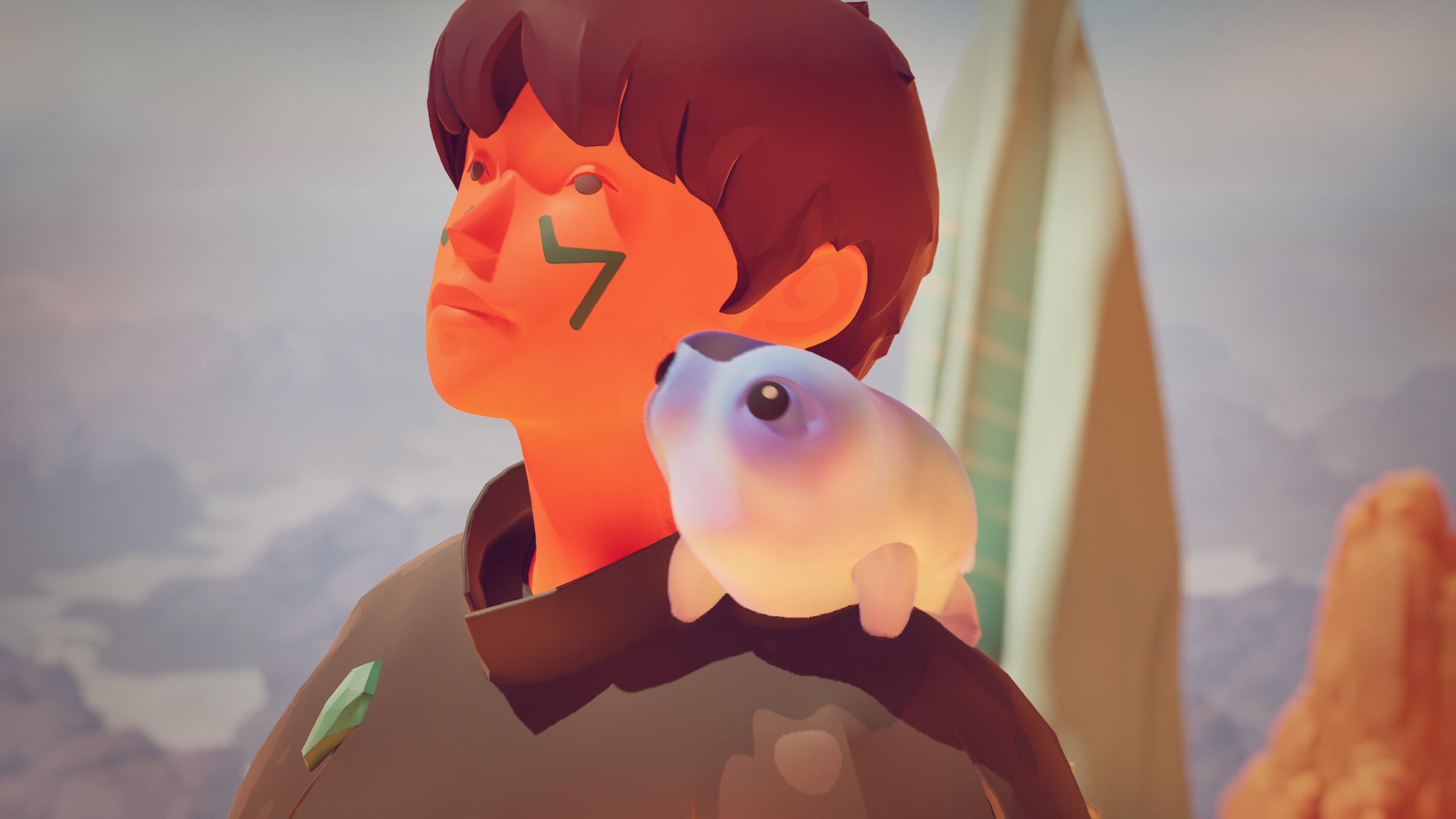
This year, I did a bit of personal respeccing of my gaming habits and focused hard on cozy games. Like so many of us, I still love games like Stardew Valley and have given plenty of other farm sims or life sims or "casual" games a try in between Stardew sessions. But the label "cozy" really took off this year—video content creators are using it in their recommendation videos, players are using it amongst ourselves to search for new games to try, and marketing teams are starting to catch on too. So I planted myself in the cozy corner more officially than I had in the past.
There were dozens of self-styled cozy games this year, big and small, packing this new catchall vibes genre with new choices. I tried more than 30 throughout the year and I've narrowed it down to the four I really don't think you should miss if you too are in your cozy era.
Coziest puzzles: Chants of Sennaar
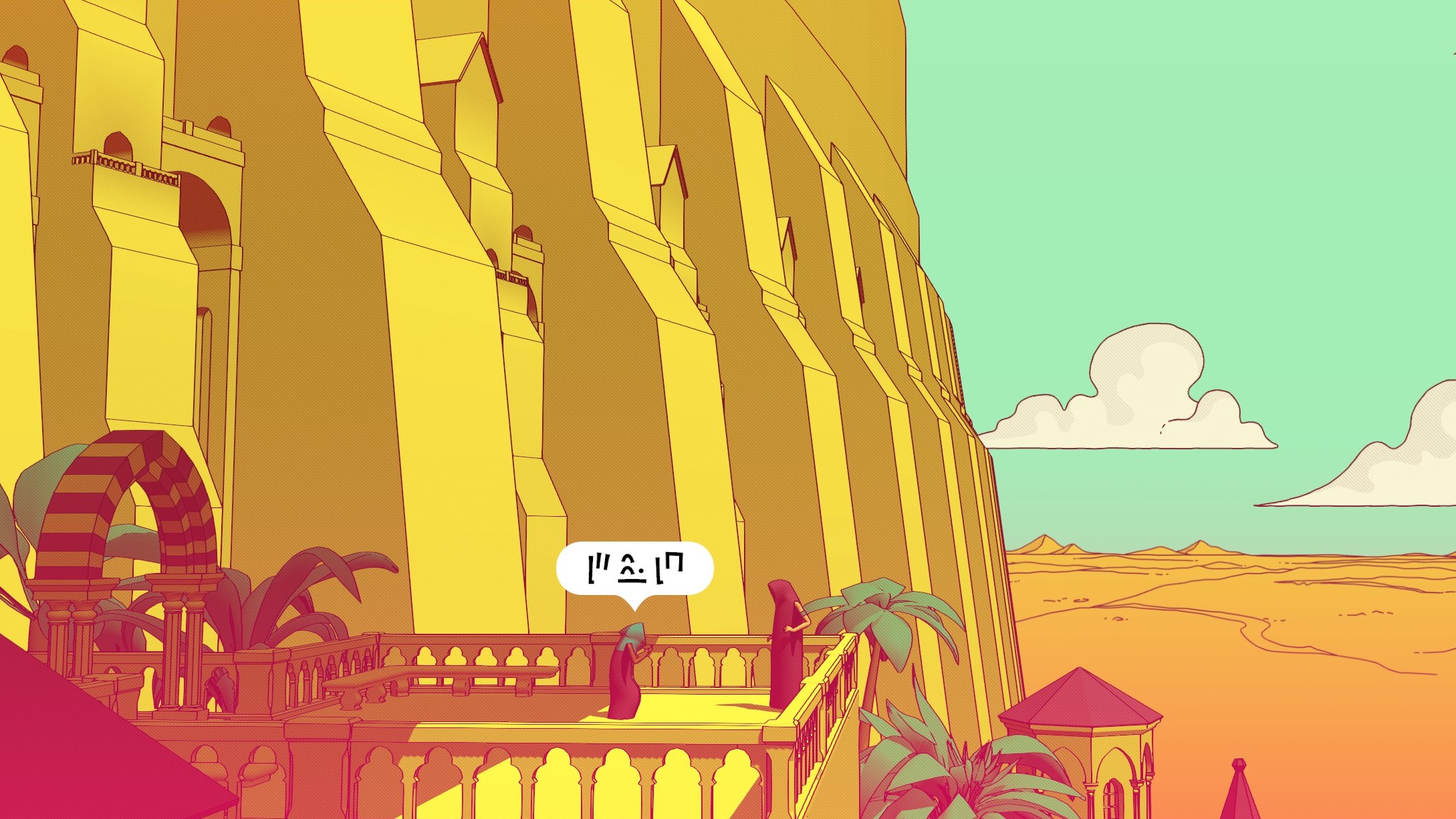
This very lovely puzzle adventure is easily my top cozy game of the year. It's the one I stretched out into 15 hours over five weeks, constantly thinking about it between play sessions even as I rationed myself so I could enjoy it for as long as possible. Chants of Sennaar is all about dissecting language, but in the most brain-tickling way that never feels like a chore.
As you explore each level of the tower, you'll translate the language of the people who live there, eventually translating between them to help each culture reconnect. Their words are all around you: in dialogue, signposts, clocks, and shops. Each symbol is noted in the phrasebook you're assembling from scratch where you'll note down your guesses for each symbol's meaning. By picking apart lever puzzles and mazes and stealth sections, you'll eventually see each symbol in enough contexts to correctly translate it, building towards your completed translation.
It's a really engaging process with a nice story threaded through the background, and this won't be the last time you hear me talk about it this year.
See also: The Cosmic Wheel Sisterhood, which is not a puzzle game but is all about a vibe, and that vibe is modern day witches building a tarot deck.
Coziest platforming: Jusant
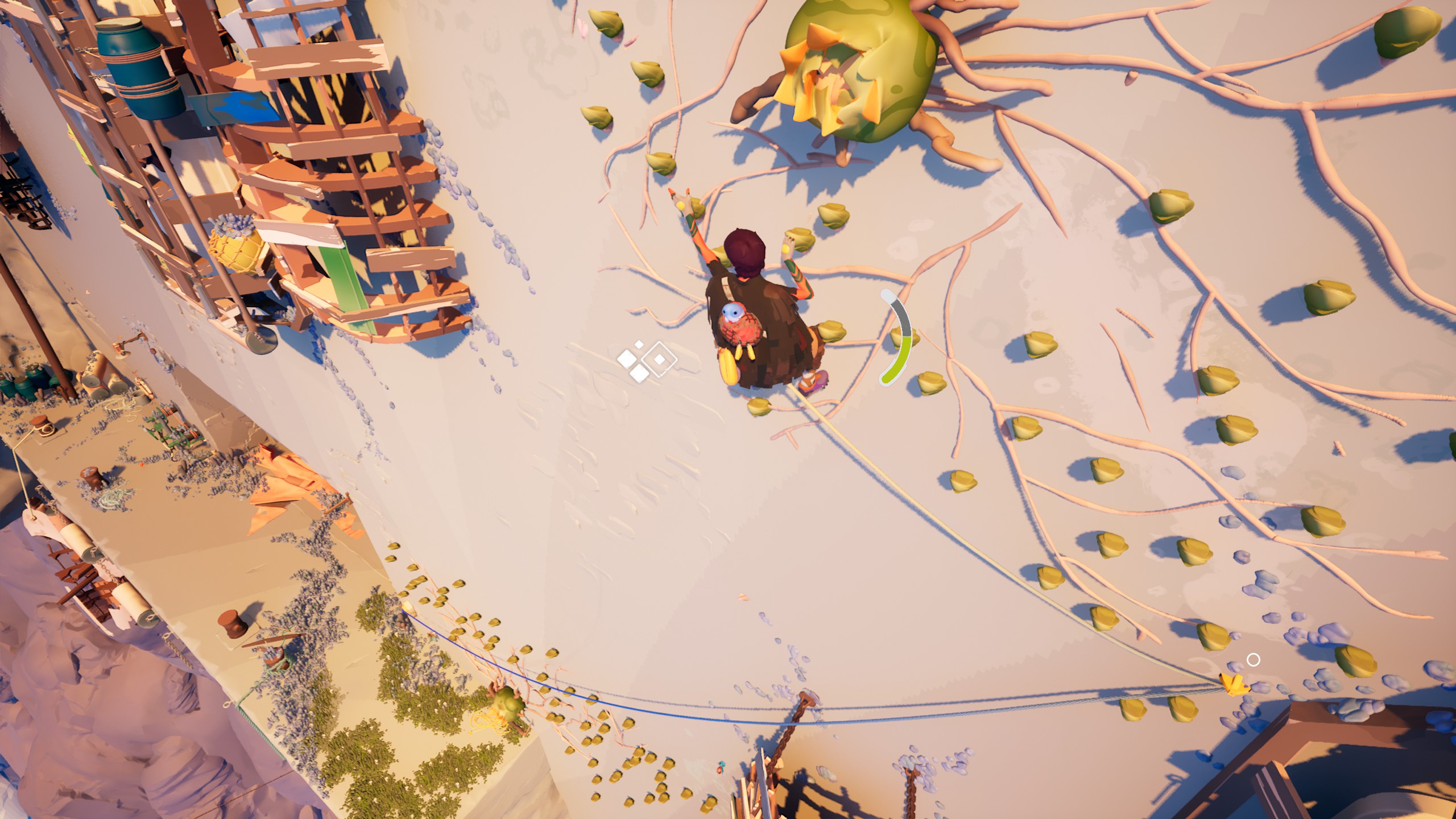
I'm still astounded that the studio behind Life Is Strange went totally off-genre for a platforming game and it rocks. It's all about climbing up the side of a huge mountain that was once underwater, taking in the evidence of an abandoned civilization that once riddled the cliff faces.
This is one of those rare cases where a game completely tunnel visions on one single mechanic, and it works beautifully. You just climb. And sometimes you rappel, or zipline, or double jump, or activate weird magical plants that have funky nodules on them that are also handholds. But really you just climb. You steer one hand at a time to your next handhold, solving the puzzle of how to complete each section grip by grip. It's got a lovely soundtrack to boot.
Jusant does highly encourage you to use a gamepad, which I'll second. Pressing and releasing your left and right triggers to grip each rock while steering your next grip with the analog stick just doesn't feel as natural on a keyboard—I tried. It has some good accessibility options too, and in particular I'd point folks to the simplified climbing that saves you from constantly squeezing your triggers. I don't normally feel the need to use control accessibility options, but my hands started to feel a touch of the carpal tunnel after a couple hours of climbing.
See also: Planet of Lana, which hails from the school of children doing perilous platforming and is more towards the cozy horror end of the chill game spectrum.
Coziest building: Fabledom
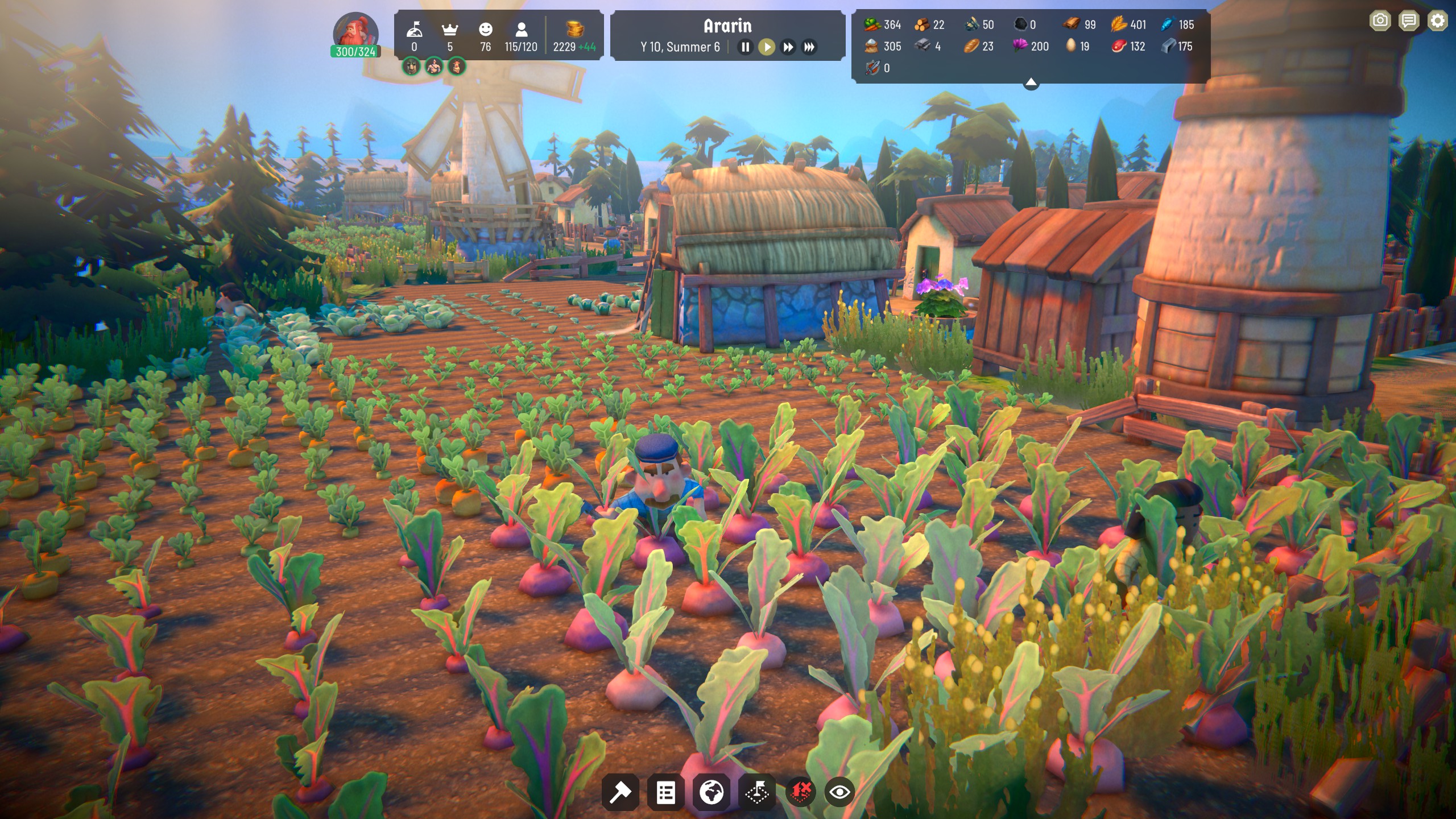
Fabledom nails the cozy vibe in form and function both. It's super cute to look at, of course, and you can zoom in to watch your citizens go about their day. But its lighter management load is what makes it cozy to me. I suspect there are people who find all city-builders to be relaxing, but most of them stress me out with overly granular control.
In Fabledom I have to manage my country's funds, population, overall happiness, my nobility score, and the total of different produced resources—wood, vegetables, coal, grain, bread, iron, and so on. Which for a city builder feels pretty breezy. There are building factors to consider too, like how stone quarries and sawmills affect the desirability of nearby residences and whether that can be offset with decorative structures or community buildings like inns and guilds. And though I've got to manage the distances that people walk from home to work and the distance it takes to carry coal to heat homes in the winter, I don't feel like I'm bogged down in menus all the time.
Fabledom is just challenging enough as a city builder to keep me busy with problem solving without pulling me away from the city design and beautification I want to do too. It's still in early access, but I've already lost more than one weekend to playing it.
See also: Palia, which is a life sim MMO, with a pretty big focus on decorating and customizing your home property as you unlock new tools and resources.
Coziest farming: Roots of Pacha
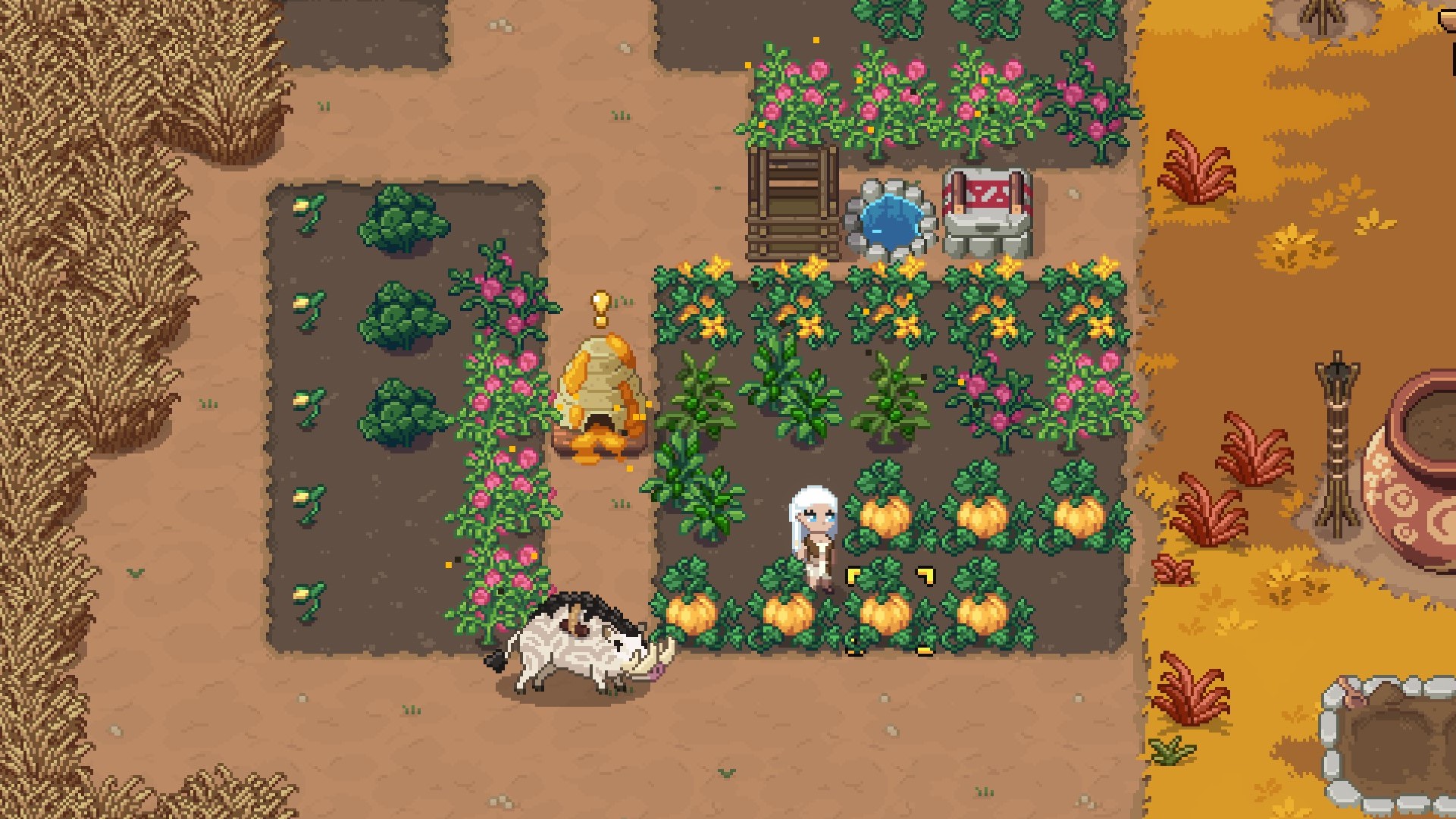
If you didn't know better, it would be easy to mistake Roots of Pacha for the next farming sim from Stardew Valley's developer. Its color scheme, character designs, animations, and relationship archetypes all feel extremely familiar. It doesn't stick to imitation all the way through though, introducing lots of its own ideas about collectivism, animal taming, technology discovery, and other themes consistent with its stone age setting. It doesn't have combat at all, which is a plus for me, but may be a con for those who enjoy diving down in the mines outside Pelican Town.
There have been so many new farm sims since Stardew's unexpected success revitalized the genre, but Pacha is the first that really felt like going back to play Stardew for the first time again. If you miss that feeling and have never really recaptured it, Roots of Pacha is the place to go.
See also: Fae Farm, a super cute farm and town sim that's quite easy to get into and with co-op, though less focus on the personalities of the townsfolk.







